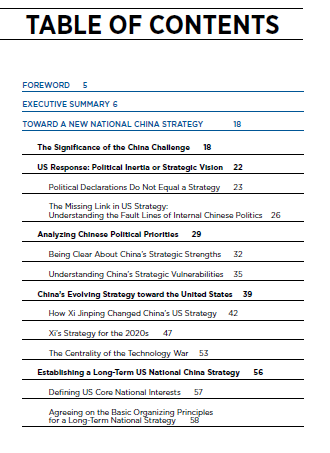
Biden's Thursday speech makes clear that his foreign policy will be different from Trump's...and Obama's.
No more "America First" or "America Reluctant". Be ready for "Team America."
[THREAD]
npr.org/2021/02/04/963…
No more "America First" or "America Reluctant". Be ready for "Team America."
[THREAD]
npr.org/2021/02/04/963…
To start, we all know the theme of Trump's foreign policy: "America First"
Or, as the "Trump Doctrine" came to be called: "We're America, B***h!"
theatlantic.com/politics/archi…
Or, as the "Trump Doctrine" came to be called: "We're America, B***h!"
theatlantic.com/politics/archi…
What about Obama? It's an open question as to whether there was an "Obama Doctrine".
Actually, the very fact that we must ask that question was likely the goal of Obama's foreign policy: the approach was highly nuanced (or even vague).
Actually, the very fact that we must ask that question was likely the goal of Obama's foreign policy: the approach was highly nuanced (or even vague).
Obama remarked in 👇"I want a president who has the sense that you can’t fix everything".
@JeffreyGoldberg observed how Obama "thinks rhetoric should be weaponized sparingly, if at all, in today’s more ambiguous & complicated international arena."
theatlantic.com/magazine/archi…
@JeffreyGoldberg observed how Obama "thinks rhetoric should be weaponized sparingly, if at all, in today’s more ambiguous & complicated international arena."
theatlantic.com/magazine/archi…
In other words, Obama seemed to embrace a "Spider-man" view of foreign policy -- "with Great Power comes Great Responsibility" -- suggesting an acceptance (yet reluctance) to that role. 

So if Obama Doctrine was "Spider-man" (or "America Reluctant") and the Trump Doctrine was "America First", what will be the Biden Doctrine?
Based on his speech, there is no more "America First", but there is also no sense of a "America Reluctant"
Instead, I sense strong "Team America" vibe.
Instead, I sense strong "Team America" vibe.

It's the idea that America is indeed here to...um...save the day!
Specifically, consider a few key passages from the speech.
"Investing in diplomacy isn't something we do just because it's the right thing to do for the world. We do it in order to live in peace, security and prosperity. We do it because it is in our own naked self-interest."
That rhetoric is blunt (bellicose?), not Obama-esque.
That rhetoric is blunt (bellicose?), not Obama-esque.
That passage expands on a line from the speech opening: "We must start with diplomacy rooted in America's most cherished democratic values, defending freedom, championing opportunity, upholding universal rights, respecting the rule of law, and treating every person with dignity."
As is common in such speeches, he then lists a host of specific priorities.
These range from concern about the events in Burma, checking our "adversary" (i.e. Russia), stepping up to our "competitor" (i.e. China), restructuring the US global posture, and rejoining agreements.
These range from concern about the events in Burma, checking our "adversary" (i.e. Russia), stepping up to our "competitor" (i.e. China), restructuring the US global posture, and rejoining agreements.
Sounds like he wants America to be able to fix, if not everything, a lot.
Is that possible? Or does it run the danger of overstretch, a challenge to many great powers.
amazon.com/dp/B076VXWVK8/…
Is that possible? Or does it run the danger of overstretch, a challenge to many great powers.
amazon.com/dp/B076VXWVK8/…
In a sense, while they had different approaches, Obama & Trump shared an aspersion to the notion of US as "World Police". Biden doesn't seem to share that concern.
To be clear, his view is that the US *must* be a "World Police", not because of great responsibility, but to guard US interests. Full stop.
Some might fear that this could lead into Bush-era policy/doctrine of using force to remake the world (or a region).
tandfonline.com/doi/full/10.10…
tandfonline.com/doi/full/10.10…
That remains to be seen, though it is worth recalling that Biden played a key role in the Senate approving the Iraq War.
theguardian.com/commentisfree/…
theguardian.com/commentisfree/…
So expect a "Team America" foreign policy going forward: for better and (hopefully not) for worse.
[END]
[END]
• • •
Missing some Tweet in this thread? You can try to
force a refresh










